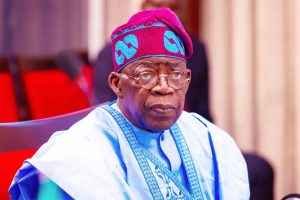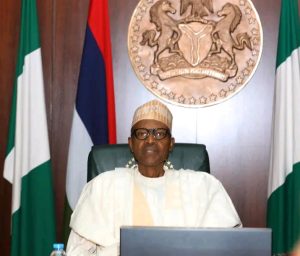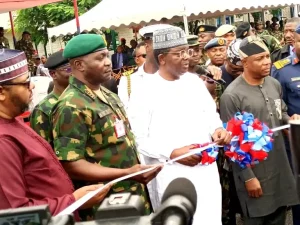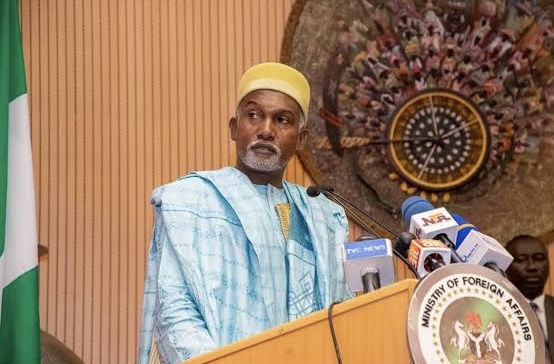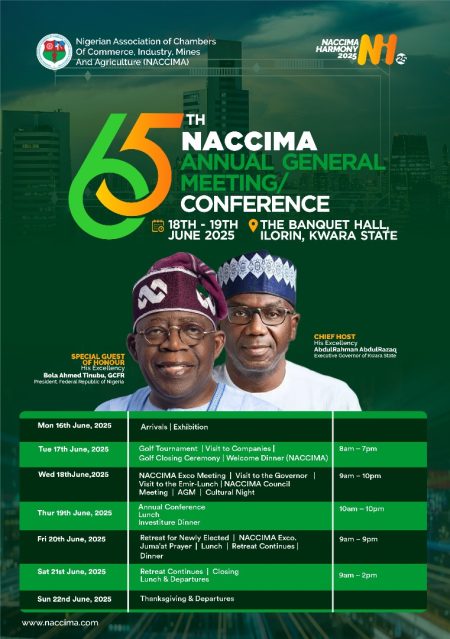Nigeria’s Minister of Foreign Affairs, Yusuf Tuggar, has declared that the country is shifting its focus towards exporting finished products to China and other international markets, marking a significant step in Nigeria’s foreign trade strategy. Tuggar made this announcement via a video shared on his official X page on September 6, 2024, during President Bola Tinubu’s state visit to China, where he participated in the 2024 Forum on China-Africa Cooperation (FOCAC) Summit held from September 4-6.
The minister emphasized that the goal of Nigeria’s trade relationship with China is to enhance value-added exports, moving beyond the traditional export of raw materials. He noted that this strategy would not only boost Nigeria’s industrial base but also create job opportunities for the country’s youth, leveraging Nigeria’s large population for economic growth.
“We are not interested in merely exporting primary resources. Our aim is to add value by exporting finished products, and we believe that China, as the largest market in the world, understands this vision,” Tuggar said. He further emphasized that Nigeria is moving towards “strategic autonomy” in its trade relations, seeking mutually beneficial partnerships that support the country’s development goals.
Nigeria-China Relations Strengthened by New Agreements
Tuggar’s comments followed the signing of several Memoranda of Understanding (MoUs) between Nigeria and China in Beijing, covering key sectors like nuclear energy cooperation, the Belt and Road Initiative, media exchange, and human resource development. These agreements are expected to strengthen bilateral ties and open new avenues for collaboration between both countries.
During his visit, President Tinubu highlighted Nigeria’s potential as the most populous country in Africa and the continent’s largest economy, stressing that the country’s youthful population is a key driver for future growth. “Nigeria’s young population holds immense potential to stimulate cross-sectoral programs and create opportunities for enhanced trade and industrial development,” Tinubu remarked.
Dismissing Concerns on Exploitation
Addressing concerns about exploitation in Nigeria’s trade relations with China, Tuggar refuted claims that Nigeria might be taken advantage of in these dealings. “We are not children; we know exactly what we want. Our partnership with China is based on mutual respect and shared goals, particularly in the area of industrial and economic development,” he explained. Tuggar reiterated that the focus is on creating long-term benefits through industrialization, job creation, and the export of value-added goods.
Strong Economic Ties with China
China has long been one of Nigeria’s top trading partners, with the two nations enjoying robust commercial ties. According to data from the Nigerian Bureau of Statistics (NBS), Nigeria exported agricultural products worth N572.58 billion to Asia, including China, in 2024’s first quarter alone. Additionally, China ranked as Nigeria’s largest source of imports during this period, with imports valued at N2.93 trillion, accounting for over 23% of Nigeria’s total imports.
Tuggar’s statement highlights Nigeria’s intention to build on this strong trading relationship by expanding into new areas of finished product exports. With China being the largest global market, the Nigerian government hopes this shift will create more balanced trade relations and help the country tap into China’s vast consumer base.
What You Should Know
Nigeria has been exporting significant amounts of agricultural products, such as sesamum seeds, to countries like China and Japan. This latest push to focus on finished products is part of a broader strategy to boost Nigeria’s industrial output, reduce its dependence on raw material exports, and diversify its economy.
This policy shift also comes amid the broader economic reforms under President Tinubu’s administration, which includes the removal of fuel subsidies and initiatives aimed at revamping the nation’s industrial base.


